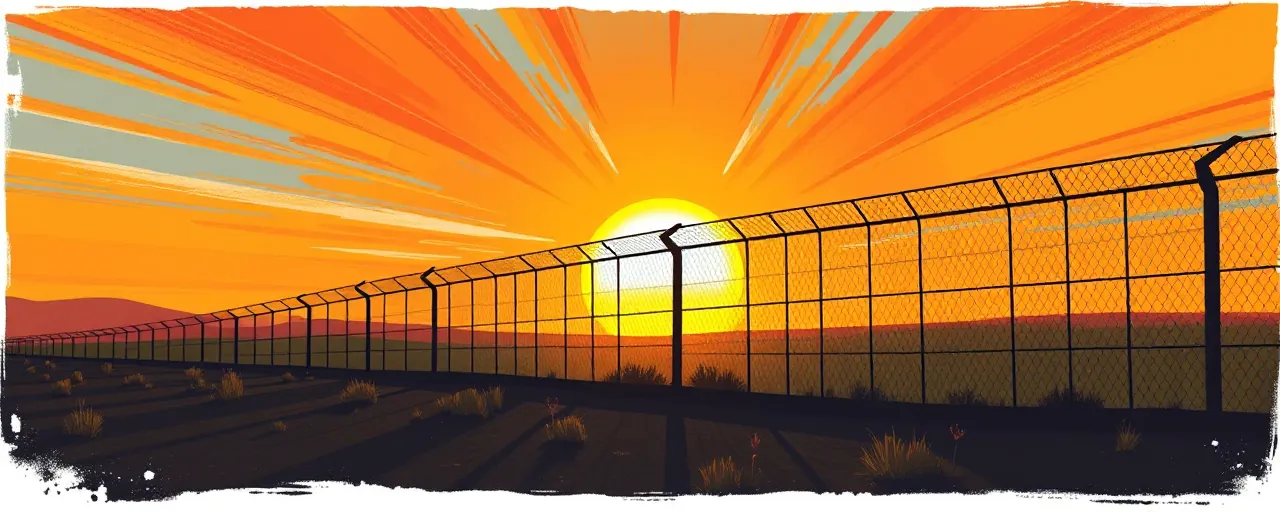A Line in the Sand
Texas Governor Greg Abbott has once again drawn a line in the sand, renewing his border disaster proclamation on April 22, 2025. This decisive action, rooted in the Texas Government Code, declares 62 counties along the Texas-Mexico border as disaster zones, besieged by the persistent threat of illegal immigration. It’s a clarion call to protect our communities, our economy, and our way of life from the chaos that unchecked borders invite.
For too long, Texans have watched as federal authorities dithered, leaving border towns to bear the brunt of a crisis not of their making. Abbott’s proclamation isn’t just a policy move; it’s a moral stand, a refusal to let Washington’s inaction dictate the safety of our state. The renewal underscores a harsh reality: the federal government’s failure to secure our borders has forced Texas to step up, and step up it has.
The Stakes Are Real
The numbers tell a stark story. Operation Lone Star, launched in 2021, has poured over $11 billion into securing Texas’s border, deploying National Guard and Department of Public Safety officers, building walls, and installing razor wire. Despite a recent drop in illegal crossings—down to fewer than 300 daily apprehensions in March 2025—the threat persists. Human trafficking, drug smuggling, and property damage remain daily realities for border communities like Hidalgo and Starr Counties.
Local governments, such as El Paso County, have shelled out millions to process and prosecute border-related crimes, diverting funds from schools and roads. These aren’t abstract statistics; they’re the lived experiences of Texans who deserve better. Abbott’s proclamation ensures that state resources stay mobilized, empowering law enforcement to act where federal agencies have faltered.
Advocates for open borders argue that immigration fuels economic growth, pointing to immigrants’ contributions to taxes and labor markets. But this ignores the immediate strain on border towns, where shelters and services buckle under the weight of unchecked migration. The economic upside of legal, orderly immigration is undeniable, but the chaos of illegal crossings undermines those benefits, leaving communities to pick up the pieces.
Texas Fills the Federal Void
The federal government’s authority over immigration is clear, but its execution has been anything but. Under the Biden administration, Texas faced legal battles over state laws like Senate Bill 4, which empowered local police to arrest illegal entrants. Federal lawyers cried foul, claiming state overreach, yet the Supreme Court has long affirmed Congress’s power over immigration, not a mandate for federal inaction. Now, with the Trump administration dropping those lawsuits, Texas has a green light to act.
Operation Lone Star’s success—arresting smugglers, seizing drugs, and deterring crossings—proves Texas can lead where Washington wavers. Senate Bill 36, now under consideration, would create a permanent Homeland Security Division within the Department of Public Safety, cementing Texas’s role as a bulwark against border threats. This isn’t about defying federal law; it’s about filling a void left by years of half-measures and political posturing.
Some local officials, particularly in urban centers, question the need for disaster declarations, citing lower crime rates in their areas. But this misses the broader picture: rural counties like Zapata and Val Verde face disproportionate impacts, from property crimes to smuggling networks. Abbott’s proclamation ensures these communities aren’t left to fend for themselves.
A Humanitarian Crisis Ignored
The humanitarian toll of lax border policies can’t be overstated. Thousands of migrants, stranded in Mexico and Central America, face violence and exploitation due to federal policies like the suspension of asylum access. Texas’s actions, from busing migrants to sanctuary cities to building processing facilities, expose the hypocrisy of those who champion open borders while ignoring the human cost of their rhetoric.
By renewing the disaster proclamation, Abbott prioritizes the safety of both Texans and migrants. Secure borders reduce the incentive for dangerous crossings, sparing families the perils of deserts and cartels. Critics who decry Texas’s measures as harsh fail to offer solutions for the overcrowded shelters and strained resources in border towns. Their idealism, while well-intentioned, collapses under the weight of reality.
The Path Forward
Texas’s stand is a model for states tired of federal neglect. The proclamation, backed by billions in state funding, sends a message: we will not wait for Washington to act. With illegal crossings at historic lows, thanks in part to Texas’s relentless efforts, the state has proven that decisive action works. Yet the fight isn’t over; smugglers adapt, and new challenges loom.
Abbott’s leadership offers a blueprint for reclaiming sovereignty without apology. As Texas lawmakers debate an additional $6.5 billion for border security, the proclamation ensures those funds will be wielded effectively, from drones to detention facilities. This isn’t just about protecting Texas; it’s about upholding the rule of law and the integrity of our nation’s borders.
